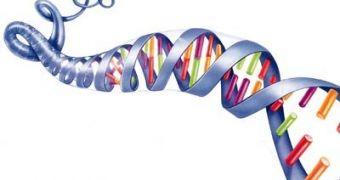A new study shows that people with mothers having Alzheimer's may themselves be predisposed to the disease, suggesting that the condition could be related to an unbalance in the way the brain handles sugar, which is most likely genetically inherited.
"Overall, these findings show that their brains are not working properly to start with, and the metabolic impairment gets worse over time. However, we don't know why or how this happens. Our study shows for the first time that individuals with an Alzheimer's disease affected mother may be at increased risk for developing Alzheimer's disease themselves because their brains are not utilizing glucose in an effective way," said Lisa Mosconi of the Center for Brain Health at NYU Langone Medical Center, New York, lead author of the study.
The study involved the examination of the PET scans of 66 healthy people, in order to monitor the glucose metabolism in the brain. The results showed that people who had mothers with Alzheimer's experienced a faster progressive reduction of the glucose metabolization in the areas of the brain mostly affected by the disease, as compared to people whose mothers did not have the disease.
"At this point, we can only speculate that genes that are maternally inherited may alter brain metabolism. We need to follow subjects for longer time periods to ascertain whether the metabolic reductions are in fact forerunning cognitive deterioration," Mosconi said. She added that in the case of Alzheimer's, the early diagnosis of the disease is crucial because the treatments are most effective then and that maintaining an overall good health should be sufficient in protecting the brain.
"One could collect the children of mothers with Alzheimer's disease, divide them into a placebo group and a drug-test group, and follow them with neuropsych tests and brain scans to see whether the group receiving the drug had delayed onset or prevention," said Dr. Sam Gandy, chairman of the Alzheimer's Association's National Medical and Scientific Advisory about the potential of using the new findings as a means to test drugs against the disease.
Greg M. Cole, associate director of the Alzheimer's Disease Research Center at UCLA David Geffen School of Medicine, Los Angeles, believes that one way to detect the disease early would be to identify the people with high genetic risk. However, so far only one gene is known to signal the onset of Alzheimer's before symptoms start to appear, ApoE4, and estimating the risk usually involves imaging techniques monitoring the brain's regional energy use, he said. The new findings indicate that people who don't have the ApoE4 risk, but have a family history of the disease could also be checked for Alzheimer's before it appears.
"This is significant because it broadens the utility of imaging as a tool for detecting the disease early -- not simply in those with a specific form of genetic risk. Now it needs to be paired with clinical trials for new approaches for prevention," Cole said.

 14 DAY TRIAL //
14 DAY TRIAL //